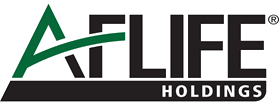The Group’s business is overseen by the Board of Directors who are the custodian of corporate governance and responsible for ensuring that the Group’s business is conducted under sound corporate governance principles. The Board approves key policies for the Group and ensures all stakeholders obligations are met within the confines of the governing laws.
The Board’s Structure
The Board Charter provides for the composition of the members in conjunction with the Articles of Association and defines the operations of the Board. The Board compromises of four Non-Executive Directors and one Executive Director
The composition of the Board ensures a balance of authority among all the members and their decision making without giving overarching voting rights to a single member. The Board is assisted in fulfilling its responsibilities by the following Committees:
a. Audit and Risk Committee
b. Human Resources Committee
c. Investment Committee
The Board has ultimate responsibility for the implementation and monitoring of corporate governance actions within the Group. The Committees assists the Board in these processes and make recommendations for final decision by the Board. Its composition includes One independent non-executive Director, Three non-executive Directors; and One Executive Director.
Board charter.
Board Members

Mrs. Neo Bogatsu [B. Com Accounting; ACCA; MBA] (Chairperson)

Mr. Muna Hantuba [BSc (Econ & BA); MBA] (GCEO)

Mr. Kudakwashe Mukushi [ACCA; CFA]

Mr. Michael Viljoen [B Economics; B Economics (Honours); M Economics]

Mr. John Janes [Institute of Bankers of Zambia Certificate; BA London; FIBZ] (Independent)

Mr. Arnold Mweetwa Shilimi [LLM, LLB, Advanced Financial Analysis and Business Management]

Mr. Geoffrey Musekiwa [CFA, MSc International Business Administration, BSc (Hon) Statistics]
The Board meets at least four times per annum to set and review business strategic issues, risk & compliance issues, approve financial results and budgets, and monitor the implementation of delegated responsibilities. Ad hoc meetings are convened to tackle urgent matters in between scheduled board meetings.
Where appropriate, the Board makes decisions by way of round lobbying which are ratified at the next sitting. The Board receives reports from the Sub-Committees on a number of issues such as key performance indicators, Human Capital, variance reports and industry trends which are reviewed in detail by these Committees for consideration and actions.


